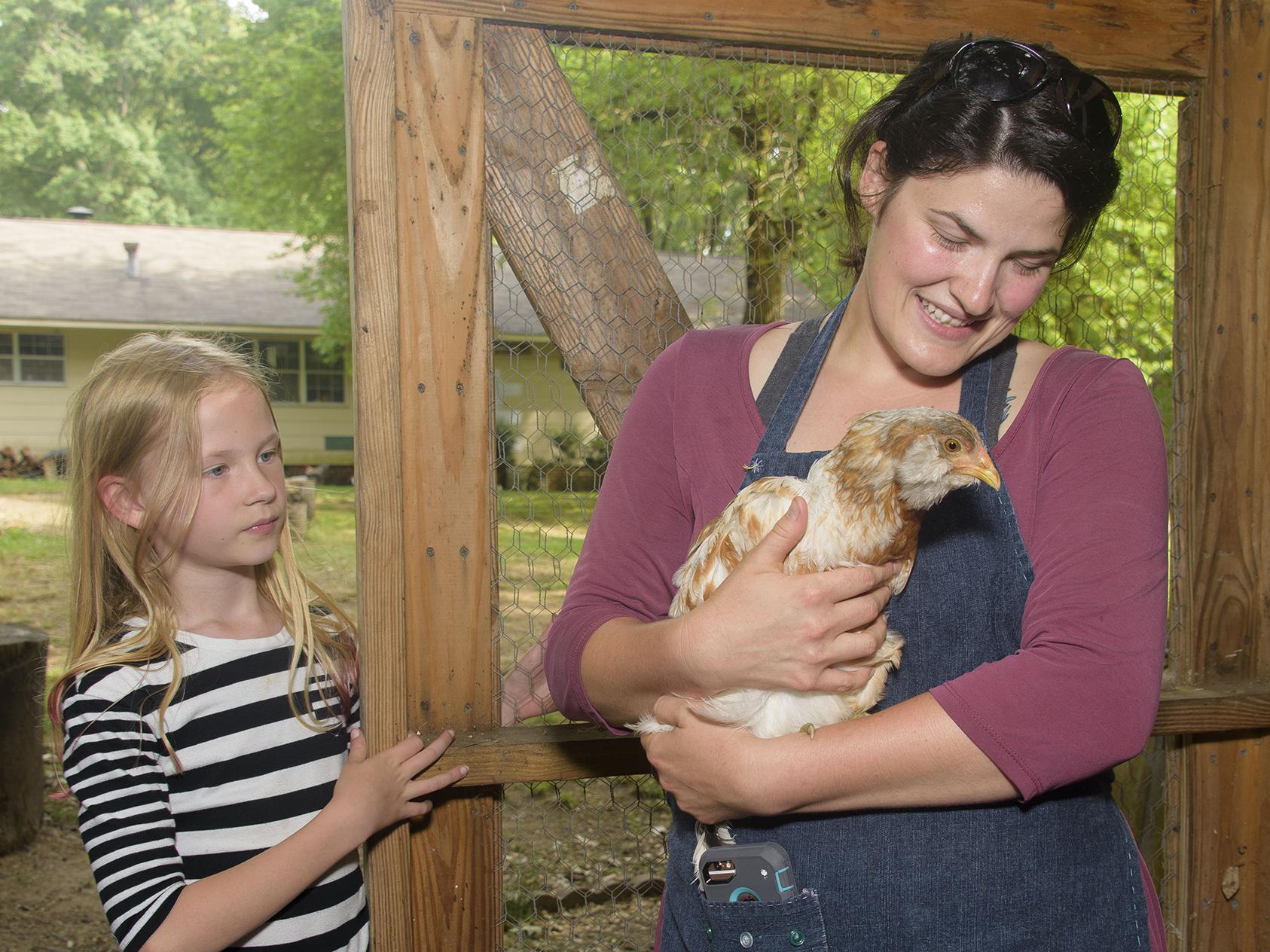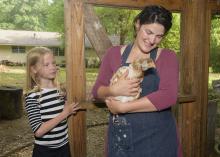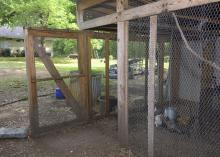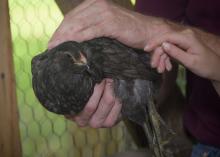Information Possibly Outdated
The information presented on this page was originally released on June 1, 2018. It may not be outdated, but please search our site for more current information. If you plan to quote or reference this information in a publication, please check with the Extension specialist or author before proceeding.
Use precautions to keep backyard chickens safe
STARKVILLE, Miss. -- More than a million backyard chicken flocks provide Americans with eggs, meat or companionship, a trend Mississippians embrace, but hobby farmers must learn proper care to keep them healthy.
Tom Tabler, poultry specialist with the Mississippi State University Extension Service, said hobbyists must watch over the health of their flocks.
“Backyard chickens are susceptible to the same diseases that commercial flocks can get, and owners should be careful not to bring home or spread any diseases,” Tabler said. “Biosecurity practices must be followed to protect birds from disease threats. It is every poultry owner’s responsibility, whether the flock numbers one or 100,000.”
Dylan Karges has been raising chickens in his Starkville backyard for about six years. He said raccoons and possums are troublesome, and a secure pen is essential to the birds’ safety.
“Coons are a threat to the eggs and the young chickens. We haven’t lost any mature birds lately, probably because when we leave the coop open, there’s enough eggs to appease predators,” Karges said. “The adult chickens that climb up high to roost are too much trouble in comparison.
“Possums haven’t gone after the mature birds, but they can wreak havoc on the eggs,” he said.
Karges and Karen Hall let their chickens free range. They currently raise 48 for eggs and occasionally meat.
“Once we let them out of the pen, the chickens start the day browsing the front yard where the sun reaches first and then move into the back yard by afternoon,” Hall said.
She said the chickens enjoy snacks from the compost pile, hang out under bushes and shrubs along the fringe of the woods, and go back into the pen at dusk.
“We shut them up at night and haven’t lost a chicken,” Karges said. “You have to be able to secure them at night.”
Tabler said biosecurity means taking all the steps necessary to prevent infectious diseases from being carried into an area by people, pets, birds, wild animals, or equipment and vehicles.
“It also includes reducing the likelihood that disease will leave your property, should you experience an outbreak,” Tabler said.
A first step is to get birds only from flocks certified as clean by the National Poultry Improvement Plan. Most county cooperatives and similar businesses buy chicks from certified hatcheries. Find more information from the Mississippi Board of Animal Health.
Prevent chickens from roaming into roadways, where any disease they may carry can be transported elsewhere. Similarly, avoid letting multiple species mingle, particularly waterfowl and chickens, as this increases the disease risk to a flock.
“Most backyard producers don’t recognize the threat created by allowing visitors near their flock or taking birds to fairs or shows,” Tabler said. “Disease organisms can easily be transported from one location to another on clothes, footwear, vehicle tires and more.”
Some backyard flock owners enjoy their birds’ ability to recycle leftovers, but Tabler said this practice has disadvantages.
“Throwing food scraps or treats may seem like a good idea, but anything left over can attract wild animals that can spread disease onto your operation or down the road to your neighbor’s operation,” he said.
Other steps to protect flocks include washing hands before and after visiting birds, using dedicated clothing and shoes around the flock, cleaning and disinfecting feeders and drinkers daily, covering all pen openings to keep other birds out, and controlling rodents, which can carry numerous diseases.
Backyard flocks are susceptible to several diseases, including infectious bursal disease, fowl pox and avian influenza. Find help in maintaining healthy backyard flocks at http://extension.msstate.edu/publications.








